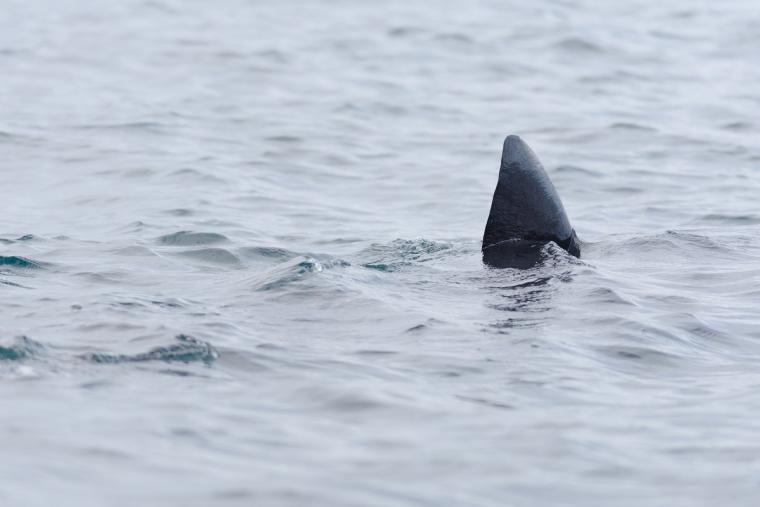
The increased presence of sharks is worrying beach users in New York and New Jersey. And since this is the season of open water swims and triathlons, the concern extends into the sports event industry.
Just ahead of the Memorial Day weekend, CNN noted that four great white sharks had been sighted around the beaches.
And just in case you think it’s all hearsay or hysterical fin-sightings, it’s technology that is keeping scientists informed of the sharks movements, say CNN reporters:
“OCEARCH, a nonprofit marine research group which provides open-source data about shark migration, recently recorded four male great white sharks around New York and New Jersey. The organization places electronic trackers on each shark that “ping” when the shark breaks the surface of the water, allowing researchers to track the sharks’ annual migration and movement patterns.”
Of course, that leaves out the possibility that untagged sharks could be out there too. And that’s where drones come in. The New York Post reports that UAVs are now circling beaches to look for sharks, an effort backed by state funding:
“State troopers will be scouting areas such as Jones and Robert Moses beaches with a particularly high-tech drone that’s equipped “with thermal imaging, laser range finding, and high-quality cameras to allow for night-time surveillance and patrols in adverse weather conditions,” according to a NYS announcement.” (Fun fact: The drone can drop PFDs if the person monitoring it sees someone in distress.)
Helicopters and planes are also being used to provide an eye in the sky to keep open water swimmers, surfers and just plain beach users safe. Jet ski-riding professionals also keep a lookout.
 But marine biologists say the comeback of sharks is a good indicator when it comes to water health. And in New York for example, conservationists told reporters at The Gothamist that efforts to keep the water clean and to preserve habitat for marine wildlife are paying off.
But marine biologists say the comeback of sharks is a good indicator when it comes to water health. And in New York for example, conservationists told reporters at The Gothamist that efforts to keep the water clean and to preserve habitat for marine wildlife are paying off.
“We're cleaning up the water,” said Craig O'Connell, with the Montauk-based conservation group O'Seas Conservation Foundation. “When you're protecting prey, you're cleaning up the water, you're protecting the predators, predator populations start to increase. So, we might be seeing more sharks along our coastline.”
Great news for ecologists might not translate into great news for those who are hosting events with open water swims (like triathlons) or other water sports events, such as surfing. But the CBS affiliate in New Jersey says that shark attacks, while dramatic, scary and unexpected, are rare. In fact, they quote the International Shark Attack File which shows the odds of a shark attack in New Jersey are extremely rare. There have only been 15 unprovoked shark attacks in the Garden State with the most recent in 2006.
Surf the Internet long enough and you can find a statistical list of shark attacks in any city, in any country. But while shark bites (or even fatalities) are high-profile, they’re statistically rare.
"You're about 200 times more likely to drown in the ocean than you are to be bitten by a shark," Gavin Naylor PhD, the Director of the Florida Program for Shark Research, said.
And make no mistake: if sharks are in the area, professionals will follow up. At city-owned beaches in New York, both lifeguards and beachgoers report shark sightings. The city’s parks department takes the information and uses it to make a decision whether to close beaches following assistance from the NYPD Aerial team, which helps to confirm if sharks are still in the vicinity.
 It’s yet another reason that beach destinations are recruiting hard in order to avoid another lifeguard shortage.
It’s yet another reason that beach destinations are recruiting hard in order to avoid another lifeguard shortage.
And with strong and proactive surveillance measures in place, and with better technology, the “Jaws” scenarios are far in the past.
“There's a lot of people conducting research now in New York, there is a shark surveillance program where they do have drones, they do have planes, they're looking for these sharks, and they are sounding the alarm when they see sharks, so people get out of the water; they're aware of it now,” O’Connell said. “And I'm hoping that that awareness will actually keep people safe.”
No doubt, event owners are hoping for the same thing.

